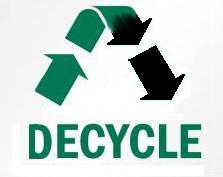The world is more and more aware of the effects of its emissions. Eventhough the lies and parasitism of financial intermediaries keeps the global psyche in a depressed state it is clearly dawning on many that time to act has come.

To act on climate change there are many ways, many tried and tested yet virtually unknown ways. But the most obvious way is to store carbon. This is not done because carbon, contained in biomass for instance, is viewed as a valuable thing, to be burned in power plants and drive the economy. As we move away from coal fired and adopt the energy of hydrocarbons like methane, gas (falsely calling it green), the alternative of burning biomass is as polluting if not more so. We need to start doing something else.

How about recycling the nutrients but not the carbon?
Carbon can be stored in the soil, where it is pretty stabile (Terra Preta). It can be burried in the ground, we know it’s quite long lastig there, and we can sink it to the bottom of the ocean, it seems as long as there’s no oxygen carbon is pretty safe.
How would this work? Waste streams will have to be processed one way or another, and although it’s now usual to get gas from decomposing waste (reducing its greenhouse effect by burning Methane to co2), the carbon can be gotten out by pyrolizing the waste, this is burning it without oxygen. The heat of such a process is partially from oxydizing carbon, hydrogen and other stuff, but the heat of that process can take apart materials and leave us with a type of charcoal, mostly carbon.
Specific types of pyrolysis can yield oil, gas and coal. It’s a hot equivalent of being deep and underground under high pressure.
This carbon should be dumped at sea or burried in places we know are fit for it. Not only would we sequester carbon (without the nutrients, so it would not deplete the ability to grow biomass), but we would be storing energy as well. There should be a system that takes any biomass and separates the usefull nutrients fromthe coal, and move that wastestream not to the next power plant, but out to sea or underground.
Our society should have these streams in place, both to get some energy out of it, and to attain the highly storable charcoal (and oil). Even if it is not that much, it can lead to a scale up next to biomass production zones. Instead of siezing this opportunity we seem to be relentlessly finding more biomass to burn without being left with anything to show for it. Use the hydrogen if you need, ditch the carbon!
